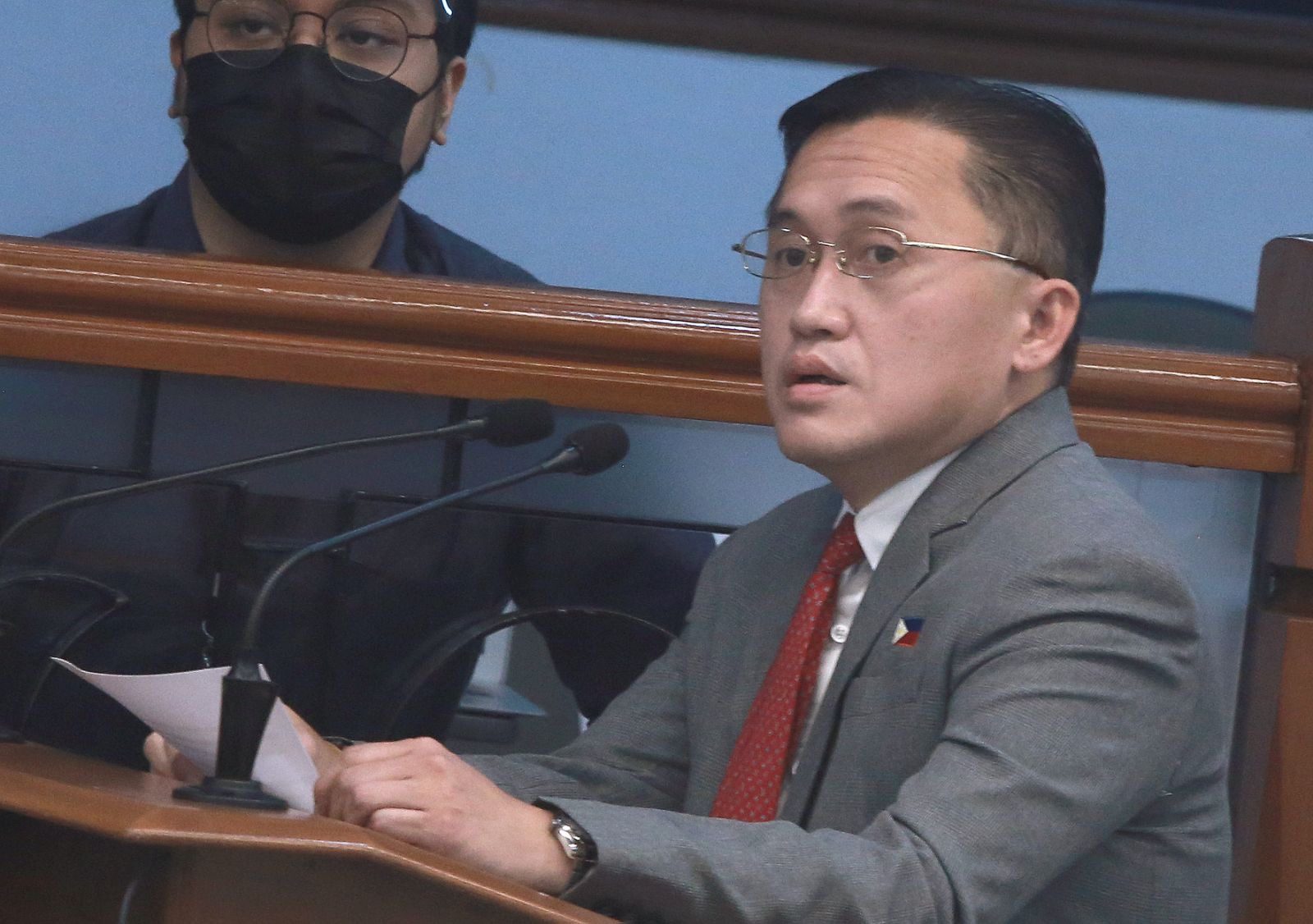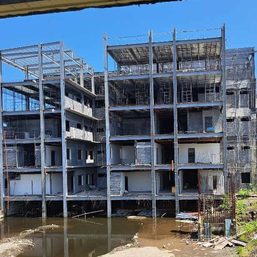SUMMARY
This is AI generated summarization, which may have errors. For context, always refer to the full article.


Senator Bong Go tried to take the easy way out by moving to end plenary debates after his colleagues exposed a fundamental fiscal issue in the bills renationalizing two hospitals that he was sponsoring on Thursday, May 20.
Senators refused to accept Go’s attempt to end the deliberations, as the neophyte legislator has yet to sufficiently answer the questions thrown at him by the veteran Senate minority leader Franklin Drilon.

Go – as chair of the Senate committee on health and demography – initially made it appear as if the 15 bills he was sponsoring were meant to mere increase the bed capacities of several hospitals nationwide. Bills like these usually breeze through Congress.
But it was the eagle-eyed Drilon who noticed that two of the measures would actually transfer the control over two hospitals – Benguet General Hospital and Lanao del Norte Provincial Hospital – from their respective localities to the national government instead.
There were also several bills establishing new hospitals in some towns and cities across the country.
Renationalizing the hospitals in Benguet and Lanao del Norte runs contrary to the Local Government Code of 1991, which devolved the healthcare system in the Philippines.
Devolution means the management and delivery of health services are in the hands of locally-elected provincial, city, and municipal governments.
Drilon said another problem with the bills Go was sponsoring was they would add financial burden on the national government that is already struggling to deal with the coronavirus pandemic.
“We are not opposed to these, Mr. President. We are in favor of these hospitals. What I don’t want is, again, we will burden the national government, which is already hard up on funds, with funding requirements which can otherwise be absorbed by the local governments,” Drilon said in a mix of English and Filipino.
Go struggles to answer
Drilon began his interpellation of Go by asking the latter to explain what the Mandanas ruling is, a query that left the newbie senator looking flustered as his staff handed him notes to help him answer.
In the Mandanas ruling of 2018, the High Court allowed the Internal Revenue Allotment of local government units (LGUs) to be sourced from all national taxes, and not just those collected by the Bureau of Internal Revenue.
Drilon argued that once the Mandanas ruling is in effect by 2022, then it will limit the financial capabilities of the national government.
When Drilon asked Go if he agreed with this, President Rodrigo Duterte’s longtime aide replied, “Yes, Mr President. Malaki pong kawalan sa national government (It would be a big loss for the national government).”
Go then tried to lighten the mood by saying this should be a reason for Drilon to run for congressman or mayor instead.
But Drilon pointed out that Go’s affirmative answer actually backs the position that the Senate should not be pushing to renationalize hospitals if LGUs are capable of handling the costs anyway.
‘Legitimate issues’ need to be resolved
The exchange between Go and Drilon would continue for over three hours, with Go requesting that the session be suspended several times so he can consult his staff and be guided on how to answer.
At some point, senators Cynthia Villar and Pia Cayetano also said that when a bill is proposing to renationalize a hospital, it should be explicitly mentioned in the measure’s title already and not hidden in the text.
“I was confused because we have local hospitals being pushed to return under national jurisdiction and senators weren’t aware of it… I’m not against it, but we should know what a law is about when we’re passing it. We should not be confused,” said Villar in a mix of English and Filipino.
Cayetano agreed, calling Go’s bills “confusing.”
“It appears to be a bed capacity issue but there is also a nationalization issue. It’s confusing. We need to know what we are dealing with so we can ask the right questions and then help in shaping that policy,” said Cayetano.
As more and more senators chimed in on the issues hounding the bills Go was defending, he proposed that the Senate just set aside discussions on these and proceed to the other measures that only increase other hospitals’ bed capacities.
He also accused Drilon of intentionally delaying the passage of the bills and depriving Filipinos of health services.
“Bakit pa natin papatagalin pa, Mr. President? Kawawa naman ‘yung mga Pilipino. Ibang usapan po ‘to ngayon, nasa pandemya po tayo,” said Go, appearing as if he was about to cry.
(Why are we prolonging this, Mr. President? I pity the Filipinos. We’re in a different situation now, we’re in a pandemic.)
He then moved to terminate the interpellation of all 15 measures entirely.
But Drilon objected, arguing that a policy question has to be resolved by the Senate first. Otherwise, they might end up setting a precedent over which hospitals can and cannot be renationalized.
“There are legitimate issues that were raised and this is principally involving the Mandanas ruling and its effect on the fiscal ability of this government to respond to its needs. I am certain that many in the Cabinet itself are concerned about this,” said Drilon.
He said Go’s accusation of malice behind his queries was “totally uncalled for.”
“If the good sponsor can answer the questions in a more precise [manner] instead of asking for suspension, baka mapabilis tayo (then maybe the proceedings would have been much faster),” added the minority leader.
Other senior members of the chamber, like Cayetano and Senate Majority Leader Juan Miguel Zubiri, agreed Drilon should still be given time to ask Go.
Drilon also pointed out that it is not a tradition in the Senate to end plenary debates when neither the sponsor nor interpellator is satisfied with the discussion.
It was only upon the intervention of Senate President Vicente Sotto III that a compromise was forged. After talking to both Drilon and Go during a roughly 40-minute suspension of the session, Sotto said the 15 hospital bills would be tackled again next Tuesday, May 25.
This isn’t the first time Drilon and Go clashed in the Senate.
In June 2020, the two senators got into a heated exchange after the neophyte Go refused to be interpellated by Drilon after delivering a privilege speech on the delayed compensation for frontliners. – Rappler.com
Add a comment
How does this make you feel?






There are no comments yet. Add your comment to start the conversation.